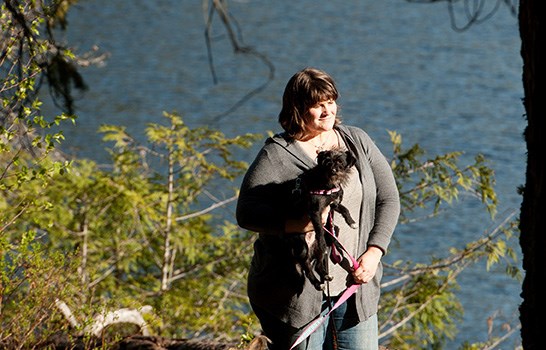Editor’s note: Patricia Heintzman is currently travelling and sent in her column from San Blas.
The house-laden islands look as if they're already disappearing into the ocean. The shoreline becomes more distinct as we approach by boat and at hightide, there is actually freeboard on the island of about two feet.
The Guna have lived in the San Blas archipelago off the Panamanian Caribbean coast for 200 years since they were chased from the mainland by warring tribes and persistent Spanish colonization. Their way of life today is synonymous with the sea and the sense of community that island existence inevitably breeds.
But the Guna face a new unforgiving provocation; they will soon have to abandon their island homes as sea levels rise due to climate change.
There is nothing quite like witnessing the stark reality of climate change firsthand to ground its reality. Most of us have become comfortably numb to its rhetoric and inevitability; we plan and adapt, and attempt to minimize our footprint. This global catastrophic risk created by the Traditional Generation [Born 1922–1945], Baby Boomers and GenX-er's unrelenting appetite for oil will be the extreme burden for today's millennials and future generations.
The Guna people have a minuscule carbon footprint compared to the average Canadian. They live a predominantly community-centric Indigenous life today and have not contributed to climate change in any real sense. Yet they are the ones faced with this existential threat.
The hypocrisy of taking an airplane to visit San Blas is not lost on me. My carbon footprint in the plane ride alone is exponentially more than a Guna would create over many months if not longer. However, I've always thought that experience is foundational in appreciating people's differences and similarities and ultimately fosters tolerance and understanding — yes, another rationalization.
Squamish has been a relative leader in B.C. with regard to climate mitigation and adaptation policy. And B.C. is a global leader with its carbon tax to be sure. However, I would argue that it's not enough and has taken too long. The District's community carbon marketplace could be a game changer in promoting sustainable local economic development and community awareness. Capturing and repurposing landfill gases and minimizing emissions from transportation will have the greatest impact on reducing our collective climate impact and should be accelerated. And embracing future-focused Squamish-based industry like Carbon Engineering who capture atmospheric CO2 to create a carbon-neutral airline fuel will continue to allow us to explore the world and find commonality among our differences.



